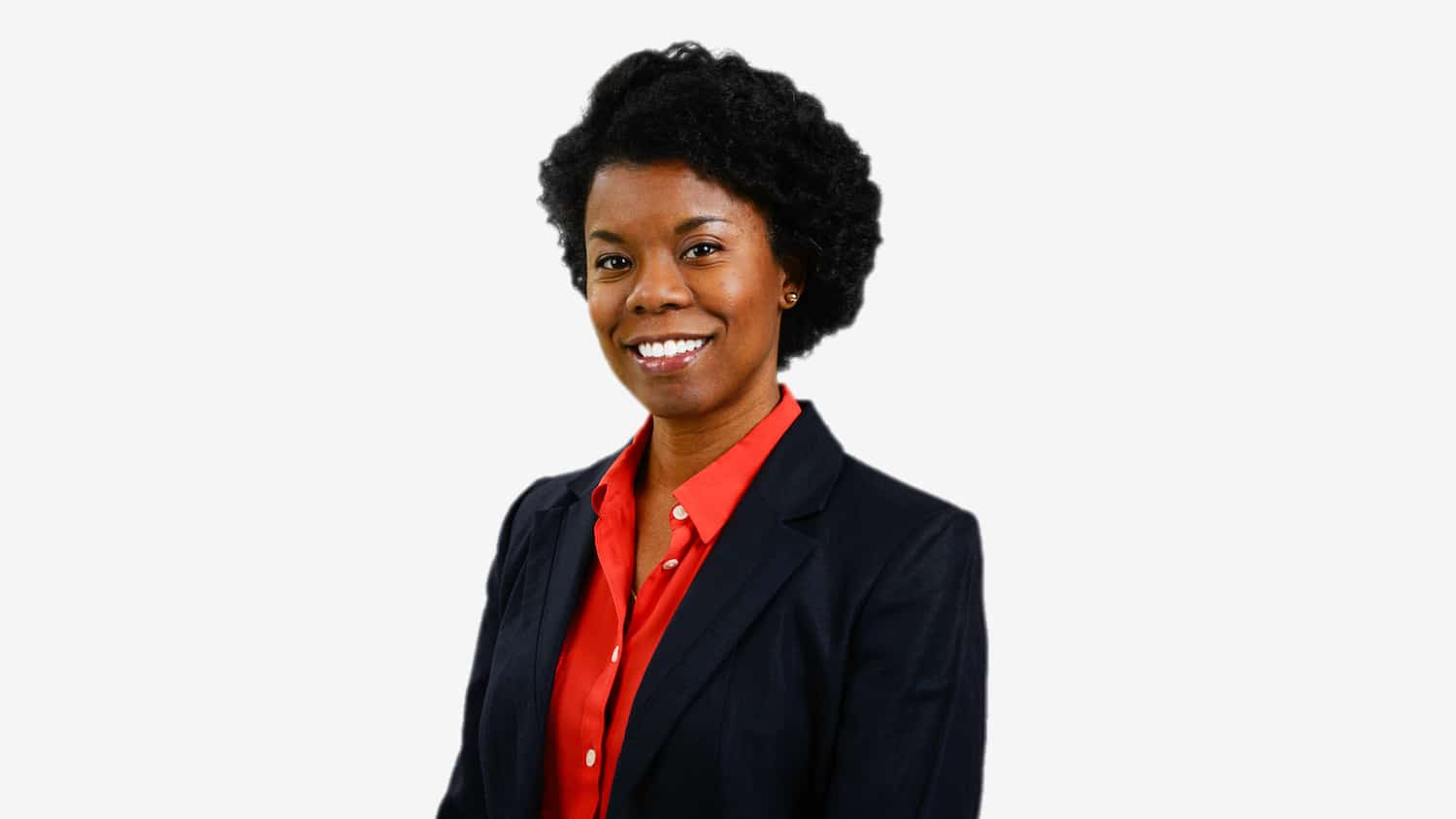For over two decades, Tamah Morant has lent her professional expertise to NC State’s Poole College of Management in a wide array of teaching and administrative leadership roles. Currently a teaching professor of economics, she’s committed to raising up leaders who are equipped to navigate an increasingly diverse, dynamic field.
Q&A with Tamah Morant
What initially inspired you to pursue a career in economics?
I first entered college with the goal of earning a psychology degree. My entrepreneurial father had hoped I would major in business, but I had an image in my head of business majors getting stuck with 9-to-5 desk jobs. Incidentally, when I took an introductory course on economics as part of my general education requirements, I became intrigued by the field. At the time, I appreciated the discipline’s balance between quantitative work and the psychology of decision-making. The chasm between those things is greater in practice than I first believed it to be, but that’s what initially attracted me to the field.
What motivated you to channel that interest into academia?
My mother is a retired public school teacher, so you could say that teaching runs in my blood. I pursued my MS and PhD degrees in economics with the goal of teaching at the university level. While earning my master’s, I spent a significant amount of time working as a teaching assistant and independent instructor for introductory level economics courses. I also served as an academic adviser for arts and sciences and as a graduate assistant for a minority student mentoring program. These roles solidified my interest in student support and academic administration roles. When I first came to NC State, I was the assistant director of the economics graduate program. This position allowed me to craft the supportive graduate student environment that I had longed for in my own graduate experience.
How would you describe your approach to teaching?
Economics can be such a mystery, but it doesn’t have to be presented that way. In the classroom, I make every effort to explain the overarching concept first, then go back and present the jargon and mathematics that go along with it. Often, the more deeply immersed we are in our profession, the more accustomed we become to the lingo. We forget how nonsensical it can sound to a newcomer. As a professor, it’s my role to demystify that jargon and translate it into accessible language for my students.
What have been some of the rewards of serving in both teaching and administrative roles at Poole?
Poole students are incredibly focused and driven. I’ve only seen that trend continue to grow over the past 20 years. My students push me to be a better faculty member through the questions they ask and the feedback they provide. When it comes to interacting with them, I also recognize that my presence matters as a Black female, both in and out of the classroom. Whether or not they identify as a person of color, I want my students to be inspired by seeing someone like me in front of the classroom and as a high-profile leader in their program. Representation in the classroom is an important step to encourage more students of color to pursue careers within the discipline. This is especially important in a field like economics, which has always been dominated by white men. We need more diverse voices and perspectives in the mix.
What advice would you give to students who are considering a career in economics?
If you like math and the idea of modeling choice and behavior, take a few economics classes and see what you think. Economics is a beautiful science. There’s a lot of room for improvement, but it’s an incredibly important field because, like with most sciences, people tend to listen to economists.
How has the practice of economics evolved in recent years?
The economics profession has traditionally been less than inclusive in terms of representation for people of color, which translates into a lack of diverse voices to inform economic research and publication. Now, the field recognizes this gap in inclusion and is creating room for different thought leadership and practitioner approaches to economic models. It’s not going to happen overnight, but we’re heading in the right direction.
How do you enjoy spending your free time?
Spending time with my husband, 15-year-old-daughter and two adult sons helps me maintain a healthy work-life balance. We have two cats that keep us constantly entertained. I’m also a 200-hour licensed yoga instructor who reads a lot. Throughout my career in administration, I’ve learned to be intentional about the time I take for myself. I find that when I hold myself accountable to rest, I’m better prepared to help others when I return to the office.
This post was originally published in Poole College of Management News.
- Categories:



